Kenya’s National Fertilizer Subsidy Program was introduced in 2022 to help farmers get fertilizer at lower prices and improve food production. The government decided to work with systems like Mezzanine eVouchering to distribute the fertilizer fairly and reach farmers across the country.
But new reports are raising serious concerns about how this fertilizer is being handled, with claims that private investors are taking advantage of the system and diverting the subsidized fertilizer for their own gain. According to the Nyakundi Report, companies like Export Trading Group (ETG) and Stabex International Limited may be selling this fertilizer abroad, especially in Uganda, at higher prices, leaving Kenyan farmers with little or nothing.
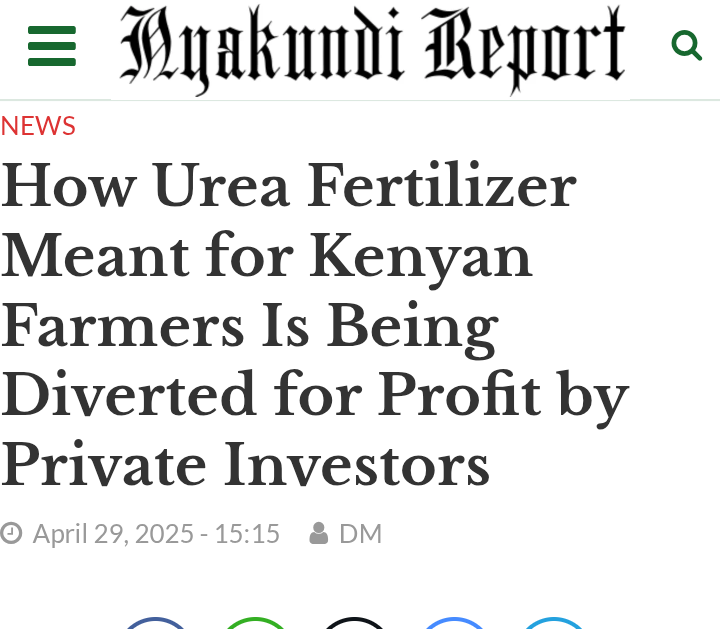
The allegations explain how the government purchases fertilizer from private suppliers at subsidized rates, for example at Ksh 2,500 per bag instead of Ksh 4,500. Out of a batch of 1,000 bags, 500 are officially registered in the system and delivered to government depots like NCPB.
But the remaining 500, which are also subsidized, are reportedly kept in ETG warehouses and later sent to Uganda, where they are sold for as high as Ksh 5,500 per bag. If these claims are true, it means the government is paying subsidies on fertilizer that never reaches the intended farmers.
The transport part of this alleged scam is said to be handled by Stabex International, a logistics company with operations in East Africa.

This situation is frustrating for many farmers, who are already struggling with high costs, unpredictable weather, and low crop yields.
The subsidy program was supposed to make things better for them, but now they are complaining about delayed deliveries, high prices even after subsidy, and a general lack of transparency. Some have called for full investigations to expose the people behind these schemes. They want accountability and fairness, not promises that never lead to results.
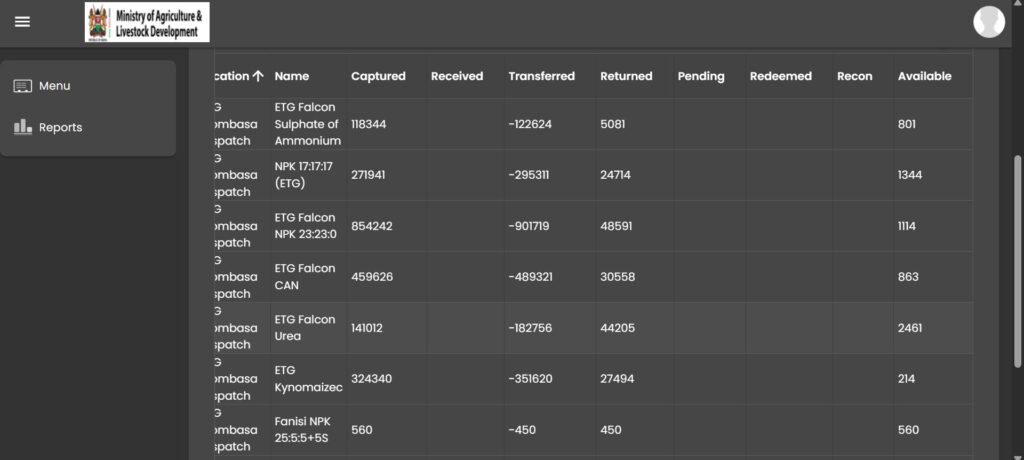
What makes this worse is that Kenya had planned to double the supply of subsidized fertilizer from 3.5 million to 12 million bags by 2024. If the system is being manipulated this early, the losses could grow even bigger. Every bag that is stolen or sent to another country means less food production in Kenya, higher prices for basic foods, and more hardship for ordinary citizens.
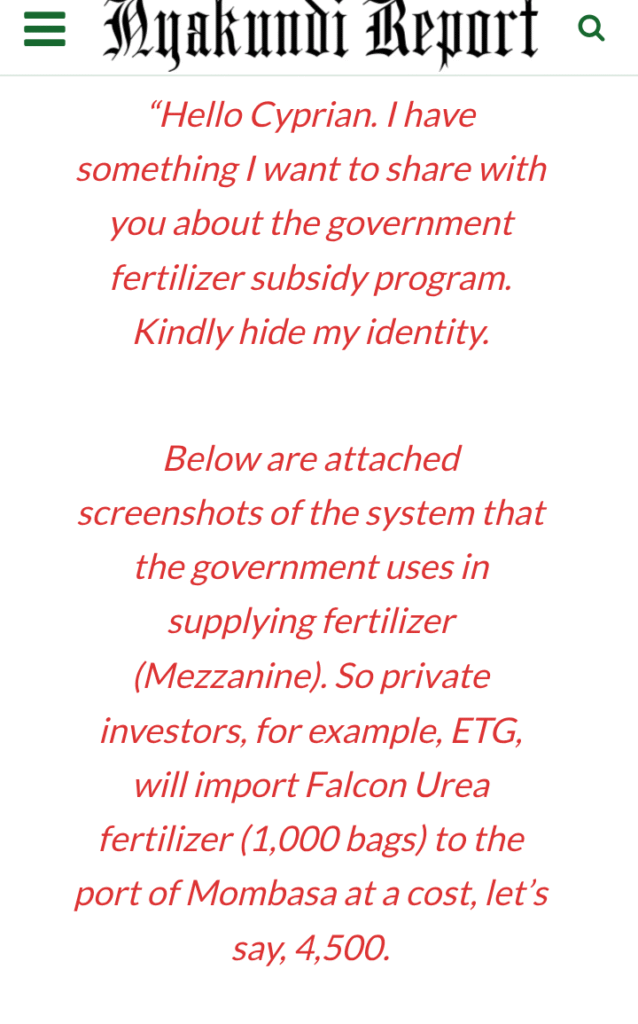
The eVouchering system was supposed to stop corruption by ensuring that only registered farmers receive fertilizer. But now it seems that the system itself can be misused by companies that have access to it. If ETG or Stabex are indeed involved, then government regulators have failed to monitor them properly. These companies have strong networks and influence in the agriculture and logistics sectors, and if left unchecked, they could do more damage.
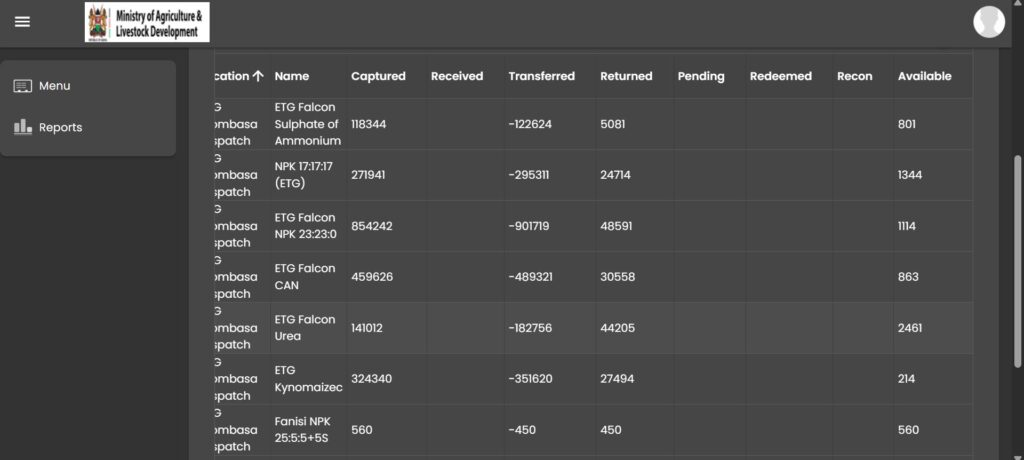
What’s needed now is action, not silence. Authorities should carry out a detailed audit of the fertilizer program, track every bag, and punish anyone who benefits illegally. Kenyans pay taxes to support such subsidies, and they deserve to see that money helping farmers, not feeding profit schemes. The future of the country’s food security depends on whether this mess will be cleaned up or ignored.







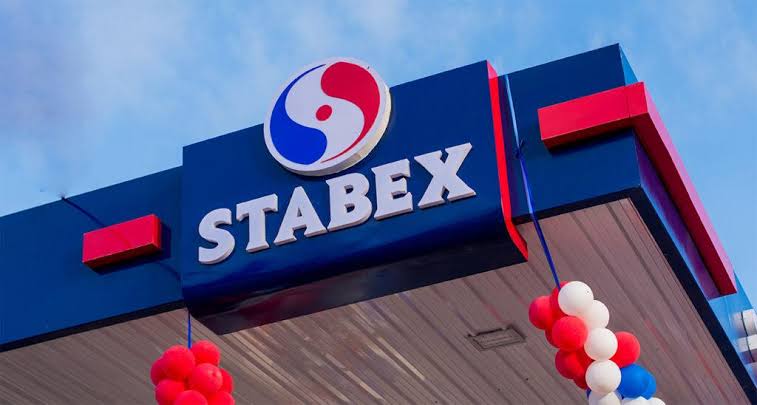


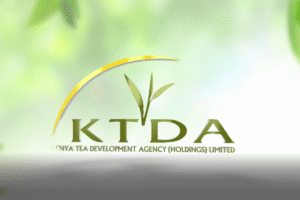






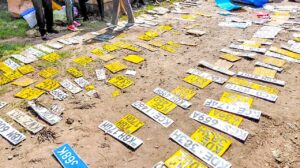



Add Comment